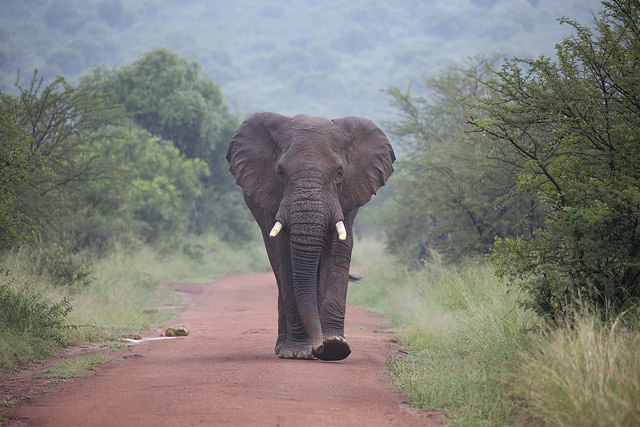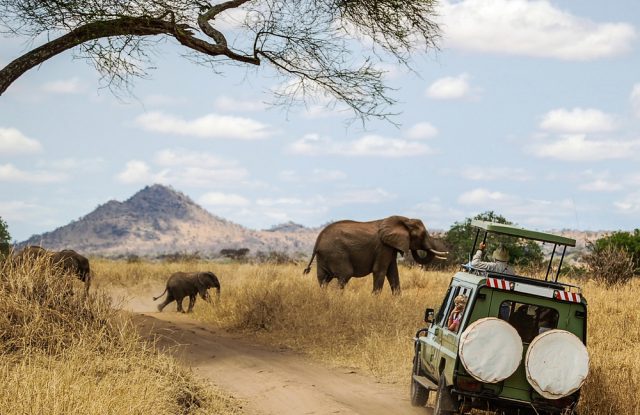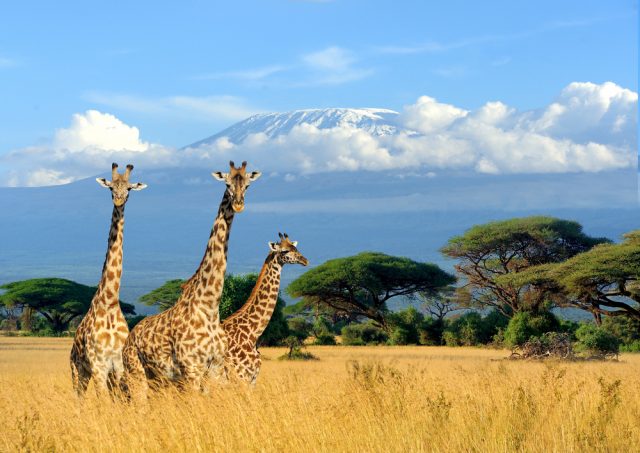 James Sanders
James Sanders
Some getaways you can make without much fuss – on the spur of the moment, even. But certain trips need a degree of organisation, and unless you’re going with an upmarket tour operator that takes care of every last detail, an African safari – truly a life-changing experience, clichéd as that phrase has become – is very definitely one of them. Here’s our take on the best approach – and some of these tips will strike you as no-brainers, but others may not have occurred to you. Let’s have at it, shall we?
Your first priority should be your health, researching whatever shots you may need, depending on the region of Africa you’re travelling to; for example, the USA‘s Centres for Disease Control lays out its recommendations for southern Africa here, and it also provides a search page for travel medicine clinics. Another search page for North America, Europe, and the rest of the world is available from the International Society of Travel Medicine. Keep in mind that you’ll want to take care of this at least four to six weeks before leaving, in order for any vaccinations to take effect.
Also necessary to take care of some amount of time (often months) in advance is to apply for any visas that might be required by the country or countries you’re planning to visit (these requirements vary greatly).
With these two longer-term preparations checked off, closer to departure you can start to focus on packing. In my experience and that of various friends, family, and experts I’ve consulted, here’s a basic checklist:
Multipocket Pants with Knee Zippers
There are a number of garments out there on the market which are both lightweight and durable, which you can wear out in the brush or unzip to turn into shorts.
Cotton Shirts
Light, fresh, loose-fitting – especially good for the heat, and fairly easy to wash.
A Sweatshirt
Because nights and early mornings – even in areas that are hot during the daytime – can get quite chilly.
Caps, Handkerchiefs, Sunglasses, Sun Cream
Vitally important to protect yourself from the especially strong African sun, especially during open-jeep travel during safari excursions.
Good Footgear
At least one pair of shoes should be comfortable (and broken in!) yet sturdy and thick-soled, for those times when you’ll be alighting from safari vehicles to do a bit of tromping around.
Swimming Costume
Because some hotels and even hostels you might be staying in will have pools. Just don’t go swimming in wildlife watering holes or rivers – especially with hippos! 😉
Sleepwear
Medium weight. And the reason why might surprise you! A number of safari lodgings are built overlooking areas where nocturnal wildlife may appear, and when animals show up, a bell is rung to alert guests to come have a look as quickly as possible. So it pays to go to sleep ready to rise and run at the ring of the bell (I’m not aware of any nudist safari resorts)!
 bumihills
bumihills
All the above items notwithstanding, my recommendation is to travel as light as possible – with fewer clothes, that you can wash as you go along – in part because most of the transports used on safari excursions tend to be smaller-size vans and accommodations as well tend to be smaller, with less available storage space.
Beyond necessary clothing (concentrating on long pants and short sleeves), I’d also recommend:
A Good Camera
On many good safari tours, you can get amazingly close to the wildlife, and while you can make do with your camera phone (get some tips here). But such is the amazing subject matter on an African safari that you may want to consider investing in a dedicated camera, and one with enough memory (or bring enough memory cards) to accommodate the plethora of pictures you’ll likely be inspired to take.
Binoculars
Sometimes you’ll also be spotting wildlife at a farther distance, and wish you could get a closer look. So whilst binoculars aren’t a must, I’d recommend investing in a pair, with 8x or 10x magnification. And no need to go crazy on price – mid-range is fine. (For binoculars guidelines and recommendations, click here.)
Mosquito Repellent
Much of the year except for winter (the dry season), African wildlife reserves (as well as nearby accommodations) tend to be plagued by mosquitos – though in the case of accommodations, window screens and mosquito netting are often provided. But better safe than sorry, or your dream eco-holiday could become an uncomfortably itchy one!
Pens and Little Knicknacks
Why, you wonder? These make great gifts for the little kids who are likely to approach you curiously in African towns and villages. They’re delighted to receive them and you’ll be delighted at their delight – a win-win!
 Volodymyr Burdiak
Volodymyr Burdiak
Apart from certain key clothing and products, here are five other tips to make your African safari a memorable success:
Never Drink Tap Water
The locals are used to the local microbes, but you aren’t, so always stick to bottled or filtered water – even for brushing your teeth – or risk ending up stuck in the loo or the local medical clinic.
Always Peel Fruit
African fruit is delicious, but for similar reasons, always remove the skin before eating, as well as avoiding salads and raw produce.
Careful With Local Sauces!
Many African prepared dishes tend toward the spicy, so when it comes to food and accompanying sauces, approach with caution until you gauge your tolerance for its heat.
Be Prepared to Haggle
This is expected, especially outside of shops and even sometimes in them. If this makes you uncomfortable, there’s plenty of material on the Internet and YouTube/Vimeo on how to do it – check some of it out!
Keep Safety and Security in Mind
Above all in various major African cities, street crime can be an issue – not just in the worst parts of town, but also in tourist areas. A number of the mid-range and high-end hotels will routinely station guards on the premises and inspect the undersides of vehicles with mirrors. And when roaming outside your hotel, travel in groups as large as you can manage, and it’s probably best to avoid going out at night if possible. Keep in mind, too, that airport greeters may try to help you with luggage and demand payment to return it. Stick with official uniformed airport personnel.
So with just a little bit of preparation and a good dose of common sense, your African safari can truly be the adventure of a lifetime. Kuwa na safari nzuri!
Related: Our First South African Safari, The (Big) Game’s Afoot in South Africa’s Kruger National Park.

